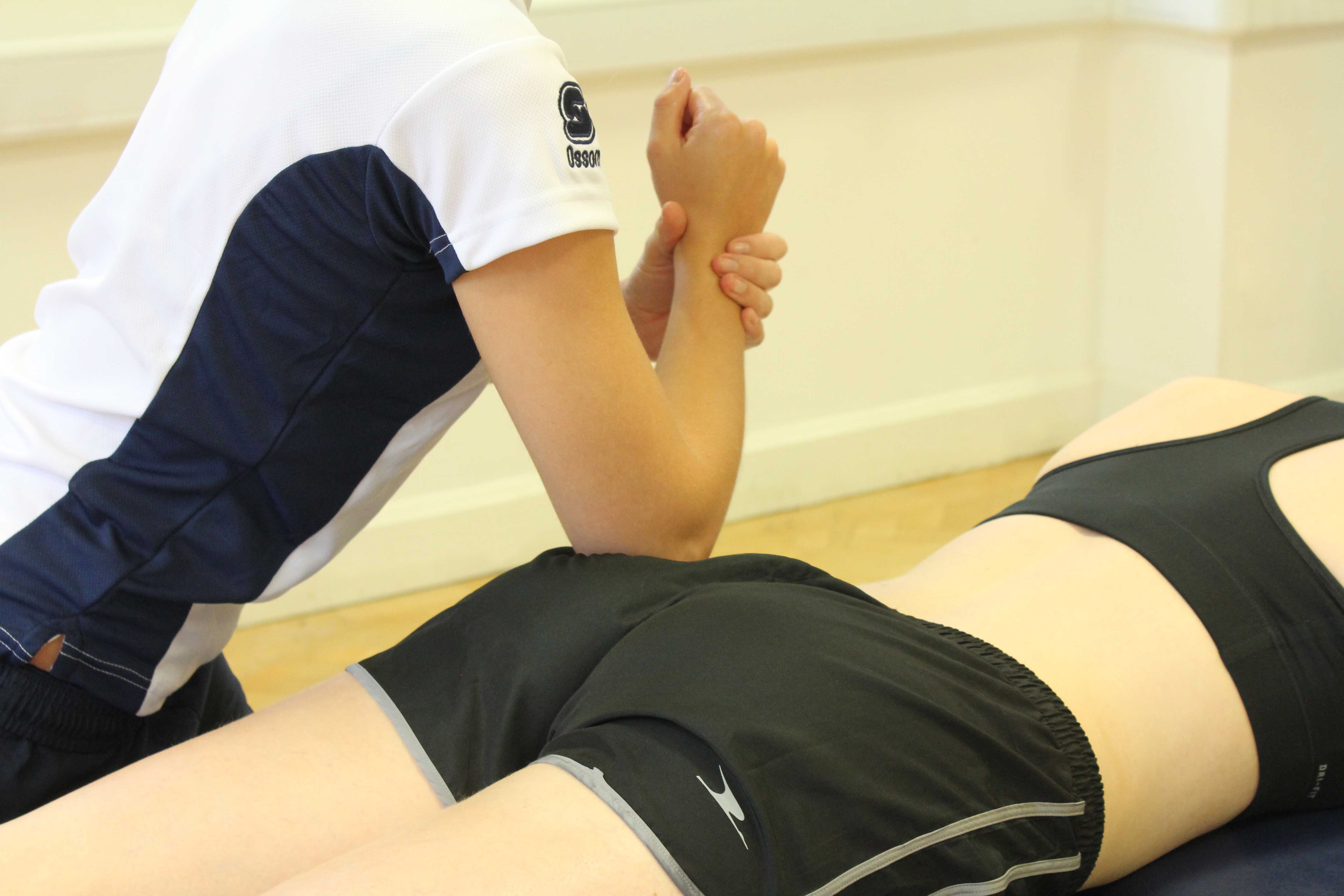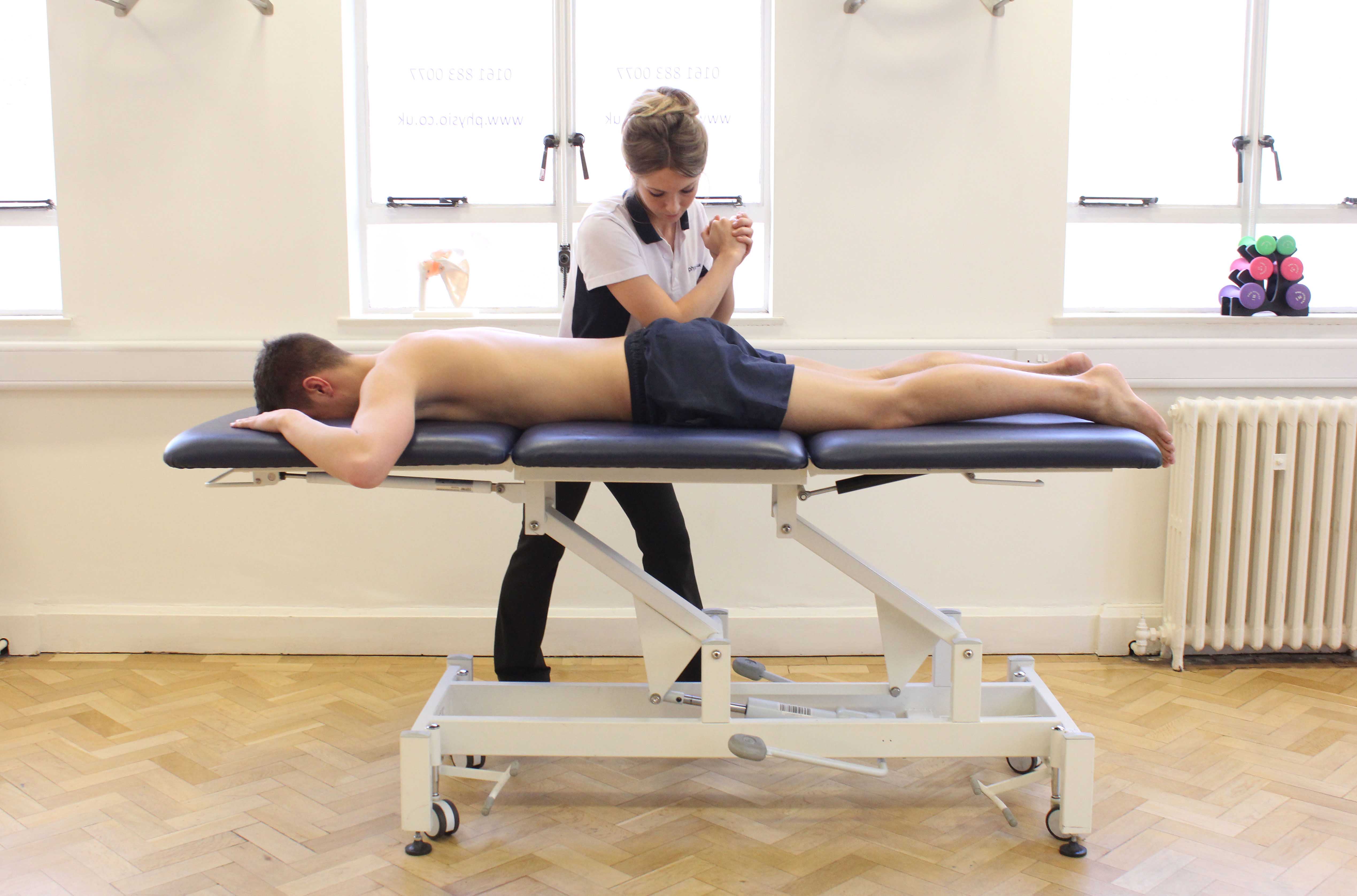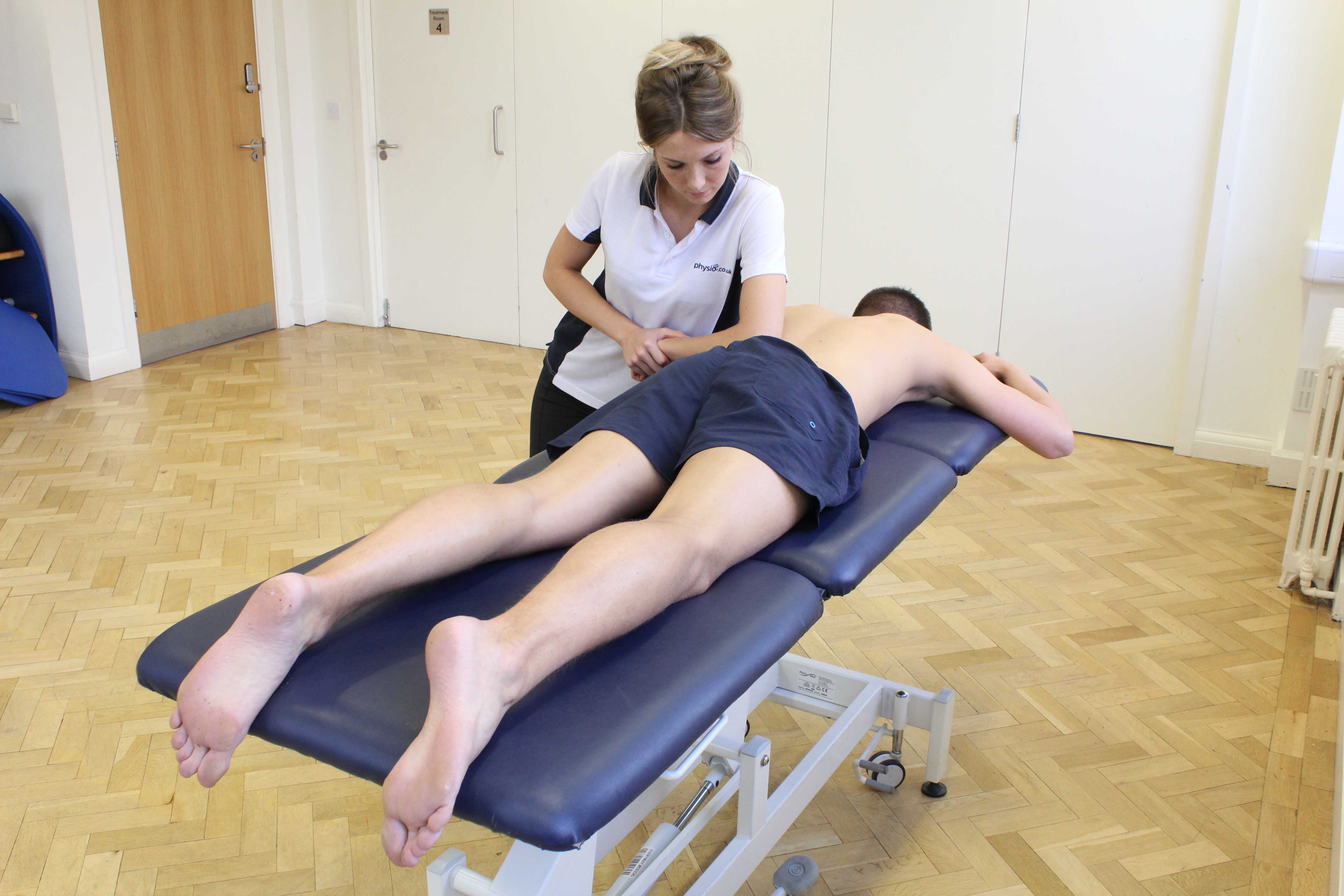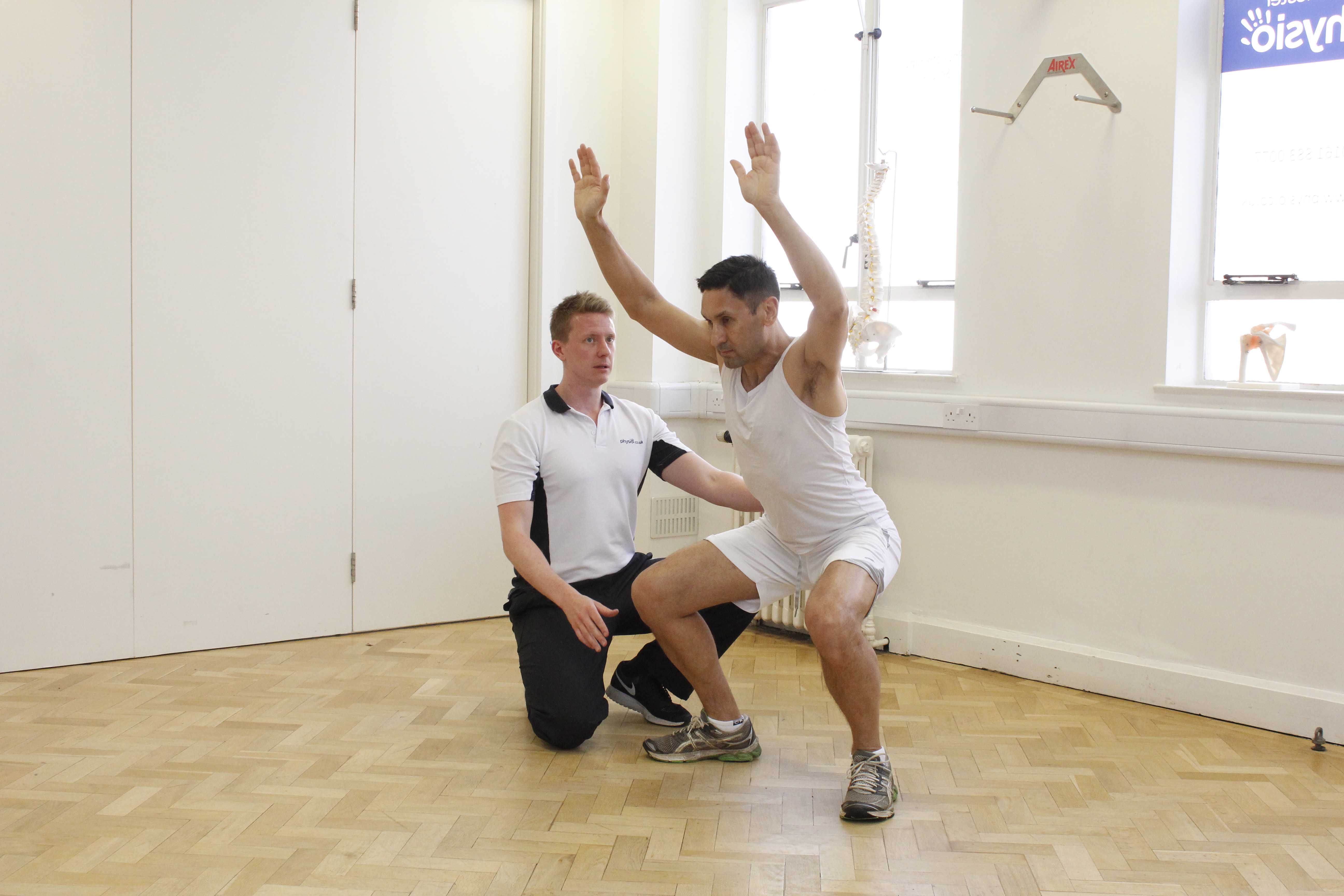What is coccydynia?
Coccydynia is pain in the coccyx area (tailbone) of the spine. Physiotherapy can successfully treat the symptoms of coccydynia.
 Above: Deep tissue massage of the gluteus maximus muscle by specialist therapist
Above: Deep tissue massage of the gluteus maximus muscle by specialist therapistHow does coccydyniahappen?
There are a number of causes of coccydynia. The most common cause is landing on a hard surface and damaging the coccyx. Other causes includeoveruse of the some of the muscle surrounding the coccyx including the gluteals, piriformis and adductors. If these muscles go into severe spasm, this may pull on the coccyx to cause coccydynia.
What are the symptoms of coccydynia?
The main symptom ofcoccydynia is intense pain felt at the base of the spine which gets worse when sitting down for long periods of time. It can be difficult standing up or climbing stairs due to the pain. Other symptoms include:
 Above: Deep tissue massage of the gluteus maximus muscle by specialist therapist
Above: Deep tissue massage of the gluteus maximus muscle by specialist therapistWhat should I do if I have coccydynia?
If you are experiencing any of the symptoms of coccydynia, it is important to see a physiotherapist as soon as possible. They will be able to carry out a comprehensive assessment and provide you with an accurate diagnosis of your injury. Icing the area with a bag of frozen peas wrapped in a wet towel or an ice pack will help to reduce the pain and any swelling. You should stop any activities that will aggravate your symptoms and this may mean temporarily stopping your usual sports or hobbies while you recover.
Physiotherapy treatment for coccydynia
Your physiotherapy will include a progressive stretching and strengthening programme that will be specifically developed by the physiotherapist to suit your needs and goals. Other treatments will include massage and soft tissue techniques to reduce any muscle spasm. Further physiotherapy options include:
 Above: Deep tissue massage to address coccdynia
Above: Deep tissue massage to address coccdyniaWhat shouldn’t I do if I have coccydynia?
Do not continue with your normal activities and sports if these make the symptoms worse and flare up. This will delay your recovery and it will be more difficult for you to return to your usual hobbies. However, it is also important not to rest from activity altogether, and this is why physiotherapy is an effective way of helping you to pace your rehabilitation.
Could there be any long-term effects from coccydynia?
If your symptoms to do subside after a period of physiotherapy, it may be necessary to have a corticosteroid injection to help relieve pain and inflammation. If this is the case, it is still important to continue with your physiotherapy programme to optimise the benefits of the injection.
 Above: Strengthening exercises for the gluteus muscles supervised by a therapist
Above: Strengthening exercises for the gluteus muscles supervised by a therapistTo arrange a physiotherapy assessment call Physio.co.uk on 0330 088 7800 or book online.

 0330 088 7800
0330 088 7800


































